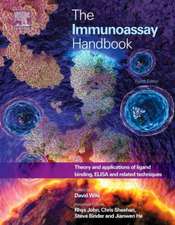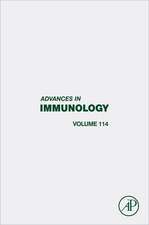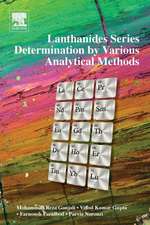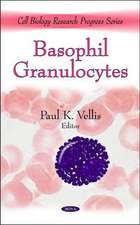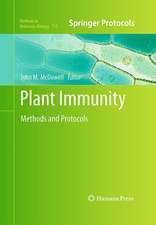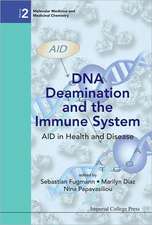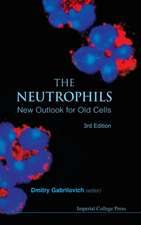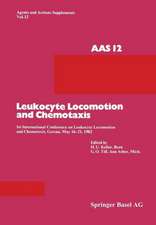Epitope Mapping Protocols: Methods in Molecular Biology, cartea 66
Editat de Glenn E. Morrisen Limba Engleză Paperback – aug 1996
Din seria Methods in Molecular Biology
- 9%
 Preț: 791.63 lei
Preț: 791.63 lei - 23%
 Preț: 598.58 lei
Preț: 598.58 lei - 20%
 Preț: 882.98 lei
Preț: 882.98 lei -
 Preț: 252.05 lei
Preț: 252.05 lei - 5%
 Preț: 802.70 lei
Preț: 802.70 lei - 5%
 Preț: 729.61 lei
Preț: 729.61 lei - 5%
 Preț: 731.43 lei
Preț: 731.43 lei - 5%
 Preț: 741.30 lei
Preț: 741.30 lei - 5%
 Preț: 747.16 lei
Preț: 747.16 lei - 15%
 Preț: 663.45 lei
Preț: 663.45 lei - 18%
 Preț: 1025.34 lei
Preț: 1025.34 lei - 5%
 Preț: 734.57 lei
Preț: 734.57 lei - 18%
 Preț: 914.20 lei
Preț: 914.20 lei - 15%
 Preț: 664.61 lei
Preț: 664.61 lei - 15%
 Preț: 654.12 lei
Preț: 654.12 lei - 18%
 Preț: 1414.74 lei
Preț: 1414.74 lei - 5%
 Preț: 742.60 lei
Preț: 742.60 lei - 20%
 Preț: 821.65 lei
Preț: 821.65 lei - 18%
 Preț: 972.30 lei
Preț: 972.30 lei - 15%
 Preț: 660.49 lei
Preț: 660.49 lei - 5%
 Preț: 738.41 lei
Preț: 738.41 lei - 18%
 Preț: 984.92 lei
Preț: 984.92 lei - 5%
 Preț: 733.29 lei
Preț: 733.29 lei -
 Preț: 392.60 lei
Preț: 392.60 lei - 5%
 Preț: 746.26 lei
Preț: 746.26 lei - 18%
 Preț: 962.66 lei
Preț: 962.66 lei - 23%
 Preț: 860.22 lei
Preț: 860.22 lei - 15%
 Preț: 652.64 lei
Preț: 652.64 lei - 5%
 Preț: 1055.50 lei
Preț: 1055.50 lei - 23%
 Preț: 883.87 lei
Preț: 883.87 lei - 19%
 Preț: 491.89 lei
Preț: 491.89 lei - 5%
 Preț: 1038.86 lei
Preț: 1038.86 lei - 5%
 Preț: 524.16 lei
Preț: 524.16 lei - 18%
 Preț: 2122.34 lei
Preț: 2122.34 lei - 5%
 Preț: 1299.23 lei
Preț: 1299.23 lei - 5%
 Preț: 1339.12 lei
Preț: 1339.12 lei - 18%
 Preț: 1390.26 lei
Preț: 1390.26 lei - 18%
 Preț: 1395.63 lei
Preț: 1395.63 lei - 18%
 Preț: 1129.65 lei
Preț: 1129.65 lei - 18%
 Preț: 1408.26 lei
Preț: 1408.26 lei - 18%
 Preț: 1124.92 lei
Preț: 1124.92 lei - 18%
 Preț: 966.27 lei
Preț: 966.27 lei - 5%
 Preț: 1299.99 lei
Preț: 1299.99 lei - 5%
 Preț: 1108.51 lei
Preț: 1108.51 lei - 5%
 Preț: 983.76 lei
Preț: 983.76 lei - 5%
 Preț: 728.16 lei
Preț: 728.16 lei - 18%
 Preț: 1118.62 lei
Preț: 1118.62 lei - 18%
 Preț: 955.25 lei
Preț: 955.25 lei - 5%
 Preț: 1035.62 lei
Preț: 1035.62 lei - 18%
 Preț: 1400.35 lei
Preț: 1400.35 lei
Preț: 650.19 lei
Preț vechi: 764.93 lei
-15% Nou
Puncte Express: 975
Preț estimativ în valută:
124.43€ • 129.43$ • 102.72£
124.43€ • 129.43$ • 102.72£
Carte tipărită la comandă
Livrare economică 12-26 aprilie
Preluare comenzi: 021 569.72.76
Specificații
ISBN-13: 9780896033757
ISBN-10: 0896033759
Pagini: 416
Ilustrații: XV, 416 p.
Dimensiuni: 152 x 229 x 30 mm
Greutate: 0.69 kg
Ediția:1996
Editura: Humana Press Inc.
Colecția Humana
Seria Methods in Molecular Biology
Locul publicării:Totowa, NJ, United States
ISBN-10: 0896033759
Pagini: 416
Ilustrații: XV, 416 p.
Dimensiuni: 152 x 229 x 30 mm
Greutate: 0.69 kg
Ediția:1996
Editura: Humana Press Inc.
Colecția Humana
Seria Methods in Molecular Biology
Locul publicării:Totowa, NJ, United States
Public țintă
ResearchCuprins
Overview.- Crystallographic Studies of Antigen-Antibody Interactions.- Epitope Mapping Antibody-Antigen Complexes by Nuclear Magnetic Resonance Spectroscopy.- Mapping Epitopes on Antigens by Immunodiffusion in Gel.- A Simple Solid-Phase Competition Assay with Labeled Antigen.- Epitope Mapping by Antibody Competition.- Epitope Mapping by Surface Plasmon Resonance in the BIAcore.- Identifying Residues in Antigenic Determinants by Chemical Modification.- Epitope Mapping by Differential Chemical Modification of Antigens.- Epitope Mapping by Proteolysis of Antigen-Antibody Complexes.- Proteolytic Fragmentation for Epitope Mapping.- Epitope Mapping by Chemical Fragmentation.- Probing Antibody-Antigen Interactions by Mass Spectrometry.- Epitope Mapping Using Multipin Peptide Synthesis.- SPOT Synthesis.- Tea Bag Synthesis of Positional Scanning Synthetic Combinatorial Libraries and Their Use for Mapping Antigenic Determinants.- Epitope Mapping Using Phage-Displayed Peptide Libraries.- Reiterative Screening of Phage-Display Peptide Libraries with Antibodies.- Homolog Scanning.- Epitope Mapping Using an Oligonucleotide Replacement Method.- Epitope Mapping by Region-Specified PCR Mutagenesis.- Random Fragment Libraries Using Yeast Expression Plasmid.- Epitope Mapping Using Random Fragment Expression Libraries in ? Phages.- Random Fragment Libraries Displayed on Filamentous Phage.- Epitope Mapping by Expression of Restriction Enzyme or PCR Fragments in Bacterial Plasmids.- Epitope Mapping of Protein Antigens by Expression-PCR (E-PCR).- Epitope Mapping on Extracellular Domains of Cell-Surface Proteins Using Exonuclease III.- An Improved Method for Mapping Epitopes of Recombinant Antigens by Transposon Mutagenesis.- Incomplete Polypeptides of In Vitro Translation for EpitopeLocalization.- T-Cell Epitope Mapping with Synthetic Peptides and Peripheral Blood Mononuclear Cells.- Use of Natural or Selected Mutants and Variants for Epitope Mapping.- Production of Panels of Monoclonal Antibodies by the Hybridoma Method.- Production of Phage-Display Antibodies for Epitope Mapping.

